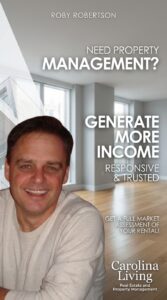Quick Answer:
The 7% rule in real estate investing is a simple guideline that says a rental property should generate annual gross rent equal to at least 7% of its purchase price. It’s a quick screening tool to judge whether a property might deliver a solid return mungiarealestate.com hellodata.ai.
🔑 How the 7% Rule Works
- Definition: Annual rent ÷ purchase price = rental yield (%). If the yield is ≥ 7%, the property passes the rule.
- Example: A $300,000 property should bring in at least $21,000/year (≈ $1,750/month) in rent.
- Purpose: Helps investors quickly filter deals without diving into complex spreadsheets.
- Limitations: It doesn’t account for expenses like taxes, insurance, repairs, vacancies, or financing costs.
📊 Comparison with Other Rules of Thumb
| Rule | Formula | Focus | Use Case |
|---|---|---|---|
| 7% Rule | Annual Rent ÷ Purchase Price ≥ 7% | Gross rental yield | Quick screening for solid returns |
| 1% Rule | Monthly Rent ≥ 1% of Purchase Price | Cash flow potential | Common in single-family rentals |
| Cap Rate | Net Operating Income ÷ Purchase Price | Net yield after expenses | More detailed profitability measure |
| Cash-on-Cash Return | Annual Cash Flow ÷ Cash Invested | Investor’s actual return | Best for leveraged deals |
hSources: mungiarealestate.com hellodata.ai mwranches.com press.hutfin.com
🧭 Practical Insights
- Markets with high costs: In areas with high property taxes, insurance, or interest rates, investors often raise the benchmark to 8–10% to ensure positive cash flow mungiarealestate.com.
- Screening tool only: Passing the 7% rule doesn’t guarantee profitability—it’s just a first filter. Detailed analysis (cap rate, cash-on-cash return) is still essential.
- Flexibility: In expensive markets (e.g., coastal cities), finding properties that meet the 7% rule may be unrealistic, so investors adjust expectations.
👉 Would you like me to break down how the 7% rule compares to the 1% rule in practice or show you real-world examples of properties that meet the 7% benchmark?




 Professional Services at reasonable rates
Professional Services at reasonable rates